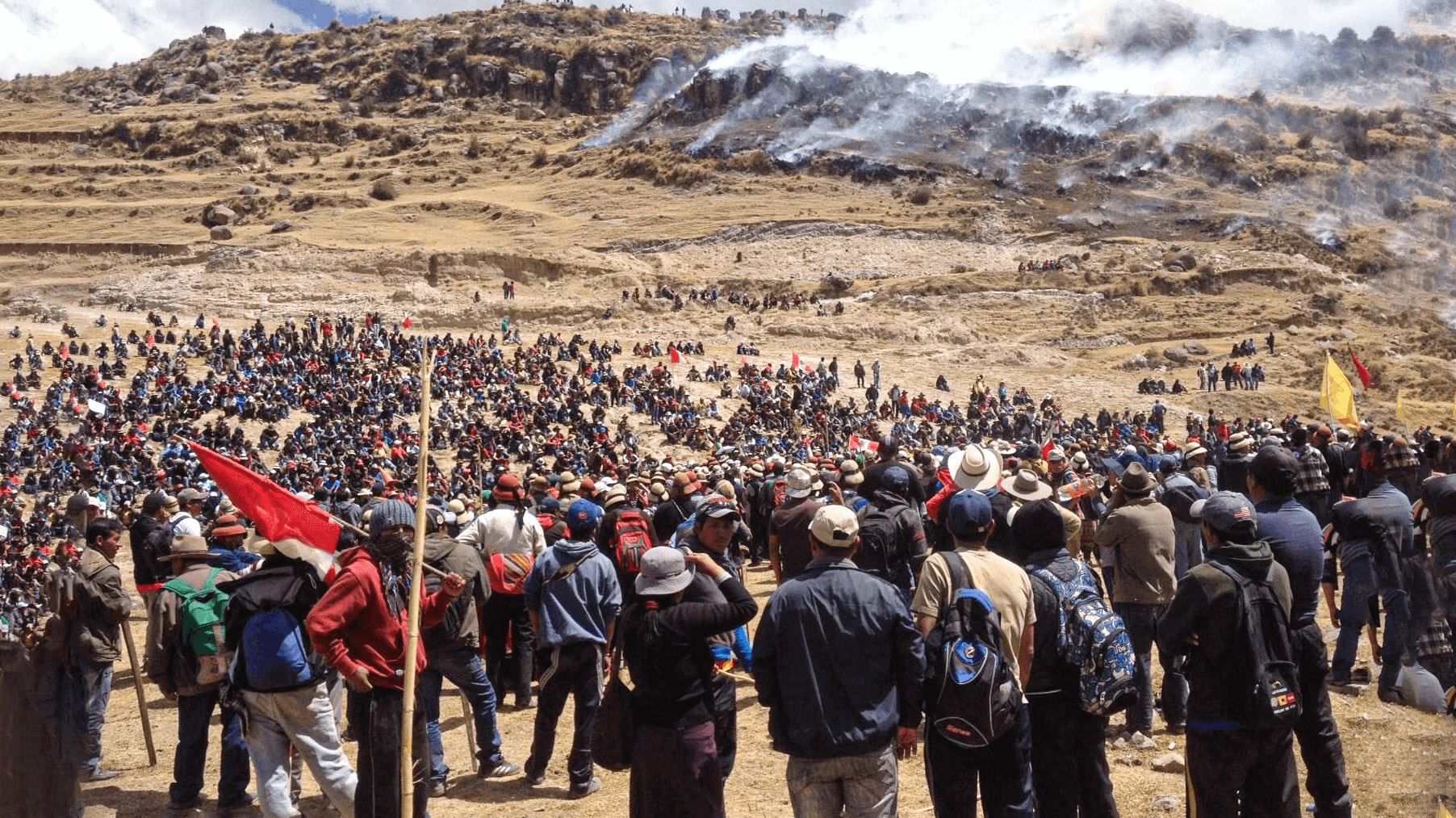The Indigenous Feurabamba and Huancuire communities in Peru’s Andean region are continuing their weeks-long protest demanding the return of ancestral lands at a Chinese-owned copper mine that accounts for 2% of global copper supplies.
The two groups pitched tents near an open pit in the Las Bambas mine, bringing production at the site, worth around $3 billion a year, to a screeching halt. Although president Pedro Castillo has declared a state of emergency in the area, this has done little to dissuade the protesters.
While MMG claims to have already paid out $500,000 of a $1.2 billion settlement agreement, the Fuerabamba say that they are owed $100,000 per family. Although the Fuerabamba had at first agreed to move out once they were paid their dues, they are now demanding the closure of the mine, which first began operations in 2016.
Back in 2014, around 1,600 members of the community were relocated to a nearby village with newly-built homes and given $300 million in cash settlements. Those who lived at the site in 2014 were supposedly meant to receive $500,000 family. However, they claim that they only received around $100,000 of this and say that they have now spent all of that money.
The impoverished communities have expressed exasperation about the mineral wealth of the region not trickling down to uplift them from poverty, despite surging international prices.
In fact, the current stand-off dates back to March, when the government approved MMG’s plans to expand the mine and increase annual output from 300,000 to 400,000 tonnes. This precipitated massive protests and on April 18, MMG, a Melbourne-based unit of state-owned China Minmetals Corp, announced that it would be suspending operations after hundreds of people entered the Las Bambas mine.
Subsequently, the government attempted to evict the protesters on April 27 by declaring a state of emergency in the area that suspended the right to assembly and protest. This led to violent clashes between the security forces and the protesters; vehicles were set ablaze and dozens were injured, with both sides accusing each other of violence.
Peru: this is an excellent report by @mrochabrun on the conflict at Las Bambas, a giant copper mine, where communities who received new housing, land and big cash payments from the mine now want to shut it down. Extortion, yes, but also a sign of the disruption big mines cause https://t.co/07s7sSnz8R
— Michael Reid (@michaelreid52) May 13, 2022
While the Fuerabamba were evicted from the mine last month, the Huancuire community remain on site. Under the Peruvian civil code, property owners can attempt to evict trespassers using force only within the first 15 days, beyond which they must go through a rigorous legislative channel.
These continued protests have resulted in the world’s second-largest copper producer’s output decreasing by 18% since December 2021.
The leftist president was a former rural activist who once enjoyed overwhelming support from native communities. However, his decision to approve the expansion of mining projects on Indigenous lands without ensuring that settlements are paid in full has led to heavy pushback.
Castillo is also facing public pressure due to the rising inflation rate, which hit 7.96% last month, the highest in 24 years. American credit ratings agency Fitch Ratings estimates that food, energy, and transportation account for 38.4% of the consumer price index in Peru.
In fact, at the start of April, the president declared a one-month state of emergency to empower the armed forces to curb protests as hundreds of truckers and farmworkers blocked roads over rising costs. In fact, violent clashes between protesters and the police near the capital left one farmworker dead and 15 others injured.
Mina MMG Las Bambas contrata más civiles, ex combatientes en Irak para enfrentar a comuneros. Un reclutador que trabajó en esa guerra dice a otros 'iracos' como él que el pago mensual es de S/ 4.500, sin horario fijo y que pueden tener que botar campesinos en la madrugada 1/2 pic.twitter.com/jUlLb7C6Nx
— Jacqueline Fowks (@jfowks) May 13, 2022
Against this backdrop, his approval rating has plummeted to 25% and could drop further still amid continued protests.
He is even less popular in the parliament, where he has survived two impeachment attempts, in December and in March, despite coming to power just last July. Given that he holds just 33 seats in the 133-seat parliament, it is unlikely that pressure from opposition parties will relent.
In order to tackle inflationary pressures, his government has proposed a referendum to redraft the country’s Constitution to expand the state’s role in the economy, which presently prevents government-led price control measures. However, given that he holds a minority of seats, it is unlikely to pass.
Furthermore, to spur even greater private investment in the mining sector, his government announced on Tuesday that it will soon introduce measures to incentivise mineral exploration. Minister of Economy and Finance Oscar Graham highlighted that the sector contributes to 12% of Peru’s GDP. He thus revealed that the government is going to “approve a package of decentralised investments with special emphasis on the mining zones.” In a similar vein, the cabinet will also undertake reforms in its mining tax codes to attract foreign investment.

